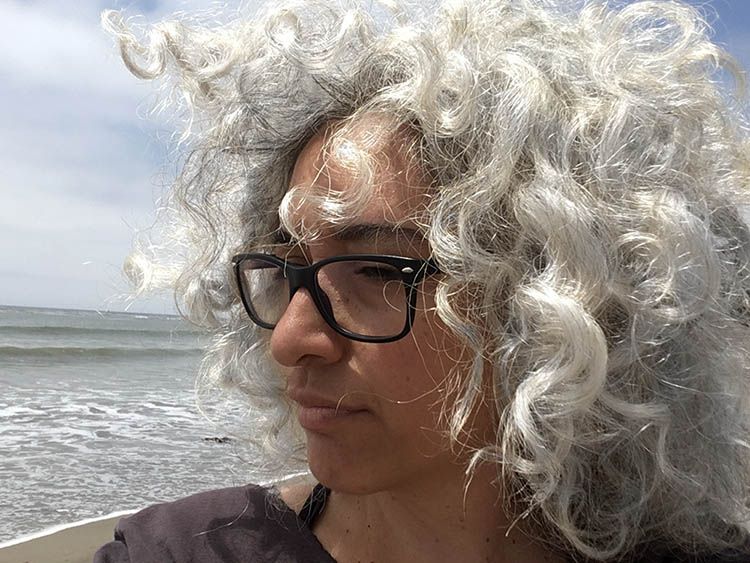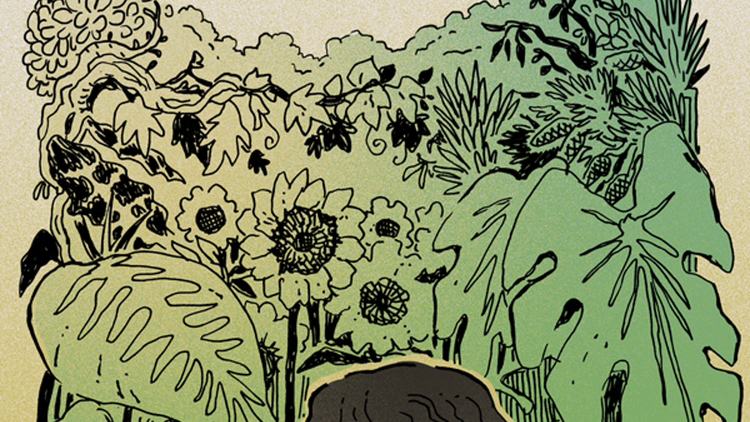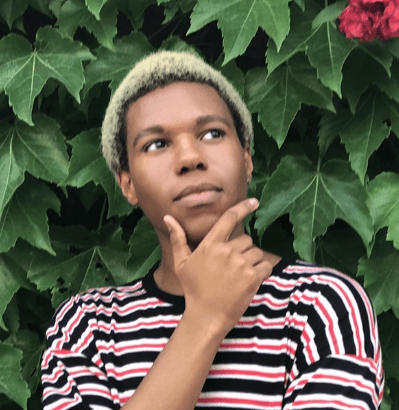Imagining The Real World by Rae Mariz

Rae Mariz is a speculative fiction storyteller and cultural critic. Her writing inhabits the ecotone between science fiction and fantasy, and features characters finding family with others who live in the gaps between. She’s the author of The Unidentified and co-founder of Toxoplasma Press. Find her work at raemariz.com and on Twitter @raemariz.
At the launch of my latest sf novella, Weird Fishes, I was asked about the importance of fiction, specifically speculative fiction, as a means to inspire and inform people about what’s happening in the real world. I hope I gave a passable answer in the moment, but I’ve been thinking a lot about that relationship between imaginative storytelling and “the real world”.
I write climate fiction and it took me a while to realize how saying that in a declarative sentence made publishing professionals recoil like I’d asked them to smell my skunk. I put it proudly in my pitches and query letters. Climate! Fiction!... Smell! My! Skunk! I didn’t know you weren’t supposed to say the c-word in polite company. I’m still not sure why that is, why it’s not something people are actively “looking for” in fiction. Because for me, stories are ideal places to work out the tangles of complicated issues—especially the “what are we not talking about when we refuse to talk about the climate crisis?” questions.
So that’s why I write about it. I craft elaborate story worlds to be the gameboards for my playful thought experiments. I use the tricks of the narrative trade to focus on things I don’t quite understand “in the real world” and would like to figure out. I envision the characters, make up the rules of the game, and then press GO to see how the story plays out. And part of that question of why aren’t we able to talk about this? ended up in Weird Fishes. In that story, one character is drowning and the other doesn’t even notice there’s something called water. How are these two weirdos supposed to get it together to do the plot? Because in the real world, we all have to get it together to do the plot.
Often times speculative fiction is dismissed as escapist literature, which, hell yeah, it is. We’re reading for escape. We’re looking for ways to get ourselves the fuck outta here. People invoke “the real world” to shut down dreamers. The real world is given this solemn weight, and imagination is referred to like it’s a flighty, wispy thing rendered in hazy pinks. A frivolous pastime. Silly. Unrealistic. Something for kids. Not part of the real world.
The “real world” isn’t the gameboard in my writing analogy, it’s not the physical place with ecosystems and laws of thermodynamics, the “real world” is just the rules of the game. Rules that we collectively make up. There is no difference between “the real world” and any world we’re able to imagine. Yes, there’s an imbalance in who has the power to enforce the rules, whose game we often end up playing, but that power isn’t an immutable force of nature (like they’d have us believe). The world we live in right now has been shaped by the interests and aesthetics of colonial imagination. The concept of time as a limited linear resource is only one perception, and not even the most widespread perception in all of Earth’s cultures. The view that grids and segregation make the prettiest cities was just one architect dude’s opinion, but his vision frustrates the civic lives of everyone moving through hypermodernist cityscapes. And what about the idea that a specific kind of labor deserves financial compensation and only through that transaction is a person allowed access to resources like food and water and shelter? Someone made that shit up. There are no laws of physics at work there. Just imagination. Or lack of imagination.
We create the world we want to live in or maintain the world we’re told we live in. I’m not a fan of binaries, but I don’t think there’s a lot of space on that middle ground. An illusion of neutrality is part of the colonial narrative. Just like there are stories that reflect and engage with “real world” issues or ones that uphold status quo fictions.
I do tend to believe in “the power of stories” to change culture only because if imagination was as frivolous as we’re told it is, then why would political and media structures expend so much energy to keep certain voices out in effort to control the narrative? Speculative stories have the potential to influence culture. To take something we’re not talking about and give it a name—the classic examples like “Big Brother” or “catch-22”—or to scale overwhelming things in a way to make them visible. With Weird Fishes, I hoped that by following one character as they learned to perceive “the water” around them, that readers could apply that experience to recognize which unexamined currents they might not be seeing in their own lives. A lofty goal, I know, and not guaranteed to change anything. How many people realized they were in Omelas and went on to complete their MFA anyway? Probably the same number who identified with Katniss instead of wrestling with what it means to be a spectator in the Capitol. So even if speculative fiction is still an imperfect means to understanding one’s position in the world, I deeply respect every writer who makes the attempt. Maybe it’s not a question of stories having power, but the ways reading them can be empowering?
I called Weird Fishes a work of radical imagination—not just my imagination, a collaboration between the reader’s imagination and my own. A lot of our current “real world” rules of the game set us up to believe that stories are a consumable product with the writer merely a content producer who either fulfills or disappoints. Yes, a lot has been written about how creative work is undervalued, but the creative work a reader engages in as they read a story is also disregarded in the publishing-is-a-business “that’s just how it is” real world gameplay. It denies readers their participation in creating worlds. The actual act of imagining, of inhabiting a POV vastly different from your own, of experiencing the success of co-creating another world… That’s a potentially subversive activity. Because if you learn that you have the power to imagine a different world, why stop there?
When Ceph, a squid-like scientist, discovers proof of the ocean’s slowing currents, she makes the dangerous ascent from her deep-sea civilization to the uncharted surface above. Out of her depths and helpless in her symbiotic mech suit, Ceph relies on Iliokai, a seal-folk storyteller, who sings the state of the sea and has seen evidence of clogged currents as she surfs the time gyres throughout the lonely blue. Navigating the perils of their damaged ocean environment, and seemingly insurmountable cultural differences, Ceph and Iliokai realize that the activities of terrestrial beings are slowing the spiralling currents of time. On a journey that connects future and past, the surface and the deep, the unlikely friends struggle to solve a problem so big it needs a leviathan solution.
Add Weird Fishes to your tbr here. Order it from Stelliform Press, your local independent bookseller, or order it via Bookshop.org to support independent booksellers throughout the US and the UK. For international shipping, you can try Barnes & Noble. You can also request Weird Fishes from your local library — here’s how to get in touch with them. And if you need to order from the Bad River Website, here’s a link that will leverage your order for good.
a Rafflecopter giveawayIn the meantime, care for yourself and the people around you. Believe that the world can be better than it is now. Never give up.
—Gailey


![Guest Host [sarah] Cavar](/content/images/size/w750/2025/03/COVER---Failure-to-Comply.jpg)



Member discussion